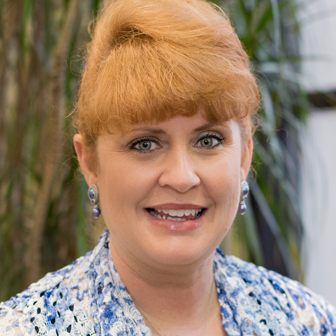Bipolar vs. Major Depression: How Do They Differ?

Find Your Perfect Match
Answer a few questions and we'll provide you with a list of primary care providers that best fit your needs.
When you face the low feelings of depression, hope can seem distant. But the good news, says Beth Esposito, MS, LPCC-S, LSW, of Samaritan Behavioral Health: Depression is a treatable illness.
Depression treatment that works for one person, however, may not work for another. That’s because depression varies from one person to the next – in severity and type. Finding the right treatment for you may take time and fine-tuning, Esposito says.
She offers the following comparisons of two common types of depression and their symptoms, diagnosis and treatment:
- Bipolar depression, which is characterized by alternating (sometimes simultaneous) periods of depression and mania
- Unipolar depression, more commonly known as major depression, which has no manic periods
If you experience one episode of depression, you are at risk of recurring bouts.
Bipolar Depression
Sometimes referred to as manic depression, bipolar depression ranges from “depression so low you can’t get out of bed” to manic highs of euphoria and “talking so fast and furiously, you can’t follow the train of thought,” Esposito says.
“Think of the best day you’ve ever had, multiply that by one hundred, and that’s the mania of bipolar depression.”
However, the manic phase varies in intensity in two types of bipolar disorder, classified as bipolar I and bipolar II, Esposito adds.
In bipolar I, manic episodes are more intense. The resulting mood swings – from the lows of depression to the highs of mania – make maintaining a job and taking care of life’s issues difficult.
With bipolar II, the manic phase – called hypomania – is mild in comparison. With hypomania, you feel and function well in many situations, including at work.
During manic phases, people with bipolar disorder typically “feel good and can get all sorts of things done,” Esposito said. Because they feel good, they sometimes stop taking their medication. And without treatment, the mania – and depression – can intensify over time.
In the more intense manic swings of bipolar I disorder, an individual may lose judgment and act irrationally. “They can spend money they don’t have, have overdrawn bank accounts, get in trouble with the law,” Esposito explains. “They may have multiple partners, they’re oversexualized, they make poor decisions and won’t listen to loved ones.”
And a person in the manic state may be unaware of the consequences of impulsive behavior caused by the condition.
Other manic symptoms include:
- Excessively high, euphoric mood
- Increased energy, activity and restlessness
- Agitation and extreme irritability
- Decreased need for sleep without feeling tired
- Fast speech and racing thoughts
- Difficulty focusing
- Abuse of drugs
A diagnosis of bipolar depression requires at least one manic episode. A bipolar I diagnosis requires a manic episode that lasts at least seven days or manic symptoms so severe that hospital care is needed – and depression episodes that last at least two weeks.
A bipolar II diagnosis requires a pattern of depressive and hypomanic episodes.
Major Depression

Major, or unipolar depression, is characterized by persistent periods of sadness, without the high, manic phases of bipolar depression. While depression can be triggered by life events, major depression stretches beyond normal periods of sadness experienced after disappointing or traumatic life events.
Symptoms such as the following may signal that ordinary sadness has turned to major depression – particularly if five or more of the following symptoms persist for at least two weeks, Esposito says:
- Sad, anxious mood or feeling of emptiness
- Loss of interest in activities that you once enjoyed
- Difficulty concentrating, remembering or making decisions
- Decreased energy and increased tiredness
- Feelings of guilt, hopelessness, worthlessness and helplessness
- Irritability
- Over sleeping or difficulty sleeping
- Changes in appetite, weight loss or gain unrelated to dieting
- Hand-wringing, pacing or other purposeless physical activity
- Slowed speech or movements
- Headaches, digestive problems, cramps, or aches or pains that do not ease with treatment and have no clear physical cause
- Repeating thoughts of death or suicide (which calls for emergency care)
A mental health professional may diagnose depression through a psychiatric exam and a review of your medical history.
If you experience one episode of depression, you are at risk of recurring bouts. And if you don’t get treatment, depression can become more frequent and serious.
Depression Treatment
Depression affects everyone differently, so effective treatment can differ from one person to the next. Your health care provider may need to try various treatments, including medications, to discover what works best for you.
Medications, psychotherapy, or a combination are commonly used to treat major depression. Some with depression can be treated with psychotherapy, or talk therapy, alone – without medication.
However, Esposito says, “with bipolar, medication is necessary to even out the mood changes.” An effective treatment plan usually includes a combination of medication and talk therapy.
Different types of medications are available to control bipolar symptoms. And more than one type may need to be tried – with the understanding that noticeable results may take time, often two to four weeks.
Electroconvulsive therapy (ECT) and other brain stimulation therapies may be considered for those who do not respond to medication and talk therapy, and whose depression symptoms persist.
Esposito adds that a support group of friends or family can play a key role in helping you during therapy.
She adds, if you encounter someone who may exhibit signs of depression, don’t be afraid to approach the person. She explains it’s common for people to say, “‘I didn’t ask the person because I thought I would make it worse.’ It’s not going to make it worse by asking, so always ask (if they need help).
“When someone’s depressed, it gets to the point they have no energy, they don’t care. They need someone to ask them and get them the help that they need.”
Find Your Perfect Match
Answer a few questions and we'll provide you with a list of primary care providers that best fit your needs.
Source: Beth Esposito, MS, LPCC-S, LSW, Samaritan Behavioral Health; National Alliance on Mental Illness; National Institute of Mental Health; ULifeline




.tmb-card-head.webp?sfvrsn=680c0961_8)
